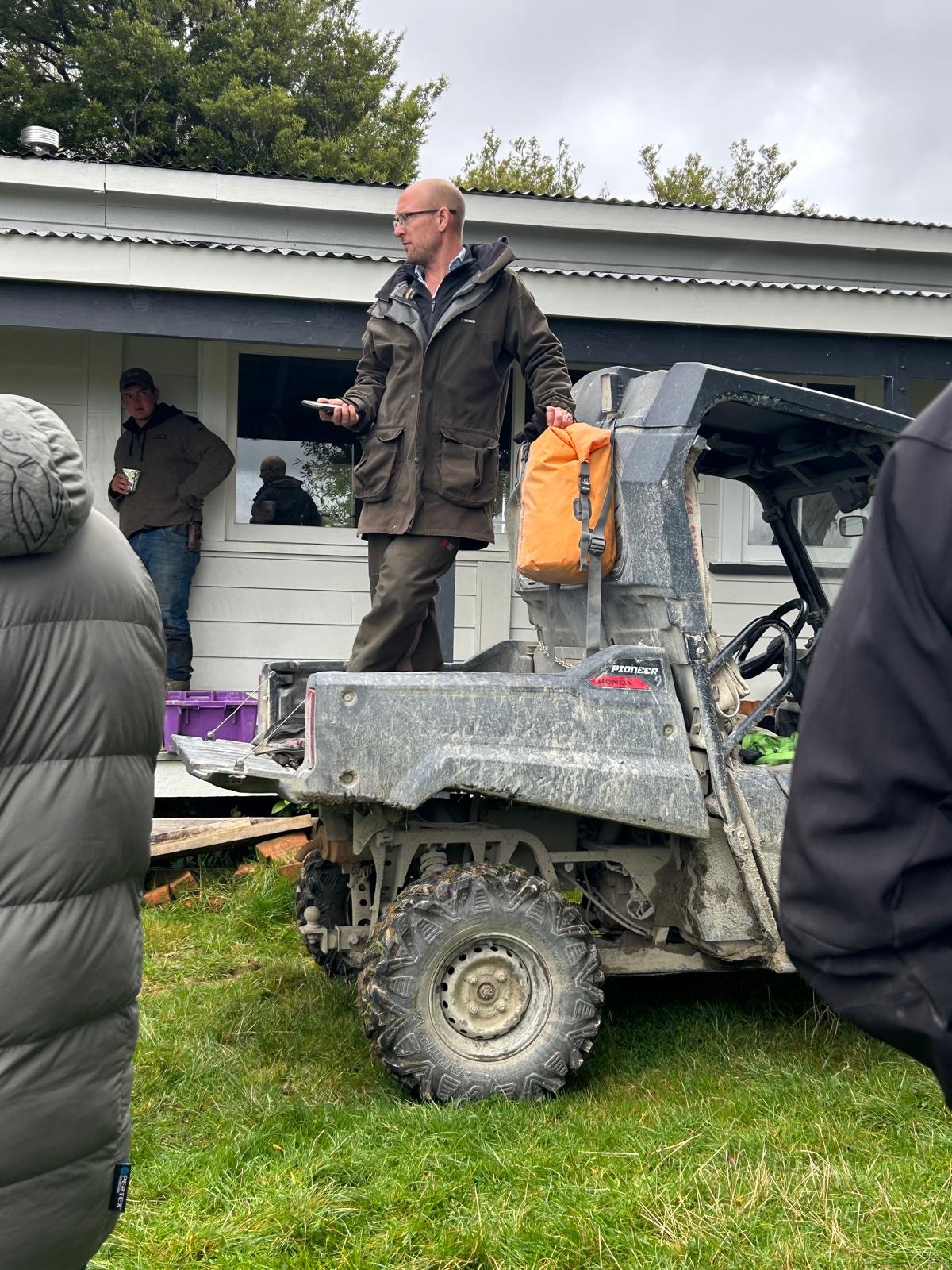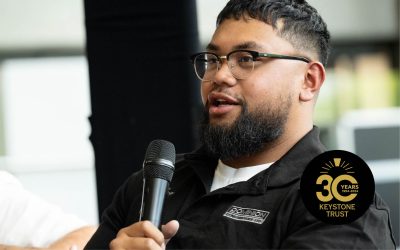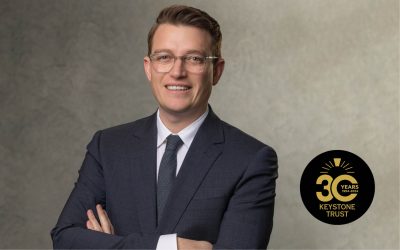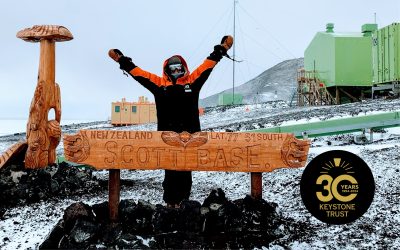
Lee Matheson gave indication of his drive in his original Keystone application letter, where, as a 17-year-old, he wrote: “I aim to get the most out of my life by doing everything positive to make it enjoyable and satisfying. A country boy at heart, my interests reflect this. I get great pleasure out of everything I do, and plan to continue, wherever life may take me.”

Lee Matheson facilitating a week-long study tour up in Te Tai Rawhiti last week, for a group of 24 high performing farm businesses.
“It’s been a blast. I don’t have any regrets with the path I’ve taken.”
He was a small school kid with glasses and braces who got picked on mercilessly by his peers.
But Lee Matheson had his own answers to bullying. It came in the form of academic dedication. By doing so: “I felt I could take control of that situation,” he says today.
And indeed he did: Lee thrived academically, completing true straight-A studies that did not falter throughout his secondary or tertiary education years.
It also played a key role in him being one of just four recipients of a Keystone Study Award in 1997, which set him on the path to university. The former Dux of Newlands College completed a degree in Applied Science, majoring in Rural Valuation and Management at Massey University, Palmerston North, and graduating with first class Honours.
The award was “life-changing,” says Lee. “I came from a blue-collar family. My parents were never going to be able to support me through university.” The scholarship of $5000 a year – a “phenomenal amount of money” 28 years ago – meant he could fully engage in the university experience without the need to work during semester times, and exit debt-free.
(Things were slightly different in those early days. The awards were known as the Graeme Bringans Property Education Trust. Payment was made by cheque.)
Lee’s career trajectory has been somewhat more circuitous than other Keystone awardees. After completing his undergraduate degree, he qualified as a rural valuer. He then changed gear completely and became a money market and foreign exchange dealer. Now he’s managing director of Perrin Ag – a medium-sized agribusiness advisory firm – in Rotorua, a role that has involved extensive and repeated international travel. Ever the achiever, he’s also a Registered Fellow of the NZ Institute of Primary Industry Management and a former director of the same.
“I realise now, over my career, that ultimately you can do all this cool stuff, but for me the impact of my engagement with people is what’s important.”
Receipt of the Keystone Trust scholarship was valuable recognition for the hard work he put into his schooling, says Lee – who also was heavily engaged in extracurricular activities. These included the school choir (he later joined a barbershop chorus at university and was in one of the country’s top barbershop quartets), debating teams, science fairs, distance running and the school council.
An indication of his drive lies in his original Keystone application letter, where, as a 17-year-old, he wrote: “I aim to get the most out of my life by doing everything positive to make it enjoyable and satisfying. A country boy at heart, my interests reflect this. I get great pleasure out of everything I do, and plan to continue, wherever life may take me.”
Clearly he has lived up to his own expectations. Asked what advice he could give to his younger self, Lee – now 44 – replies without hesitation: “do it all again.”
“It’s been a blast,” he adds. “I don’t have any regrets with the path I’ve taken.”
The drive originally forged in part by adversity continues to this day. Niggling at the back of his mind is a plan to do his PhD.


